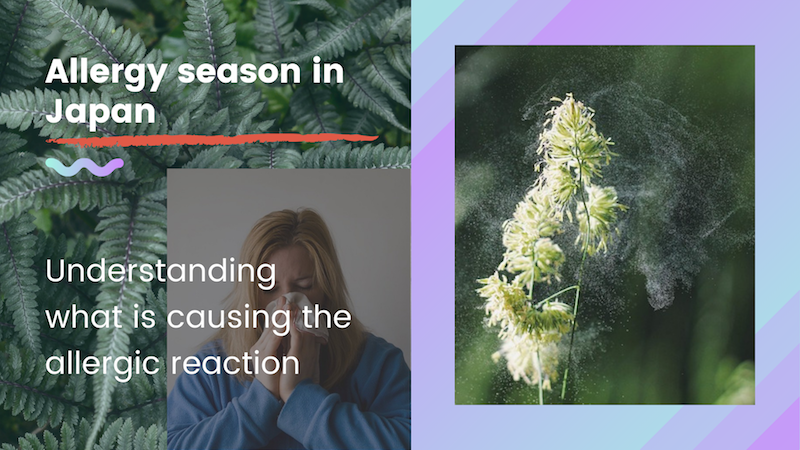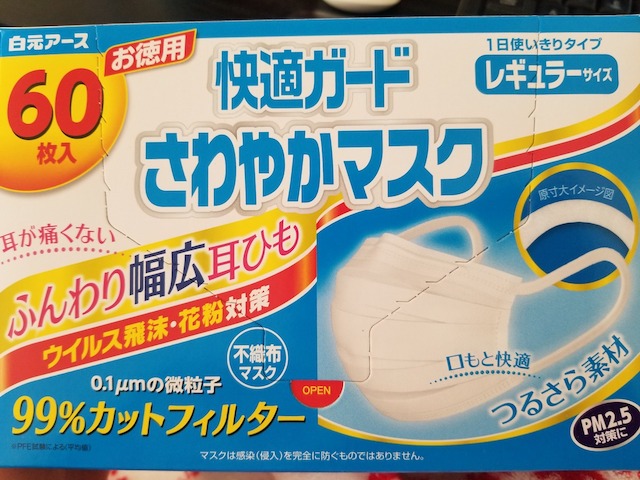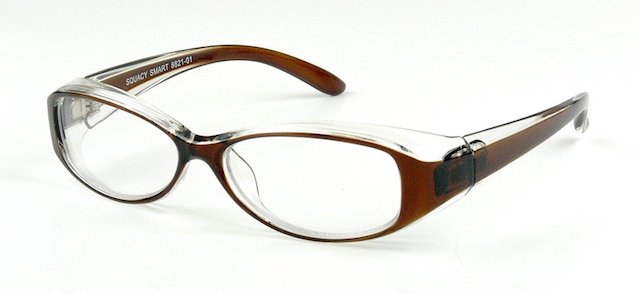2018
Allergy Season in Japan - The Dreaded 花粉症

If you find yourself sneezing, coughing, congested, and generally itching everywhere, you may be suffering from a type of hay fever that is unique to Japan. Every year from late January to mid May, millions of people experience a prolonged allergic reaction to pollen from a variety of plants and trees.
Some familiar, like ragweed. Some less familiar, like the Cryptomeria and Japanese Cypress trees, which are often mistakenly translated as ‘cedar’. These two are the biggest offenders during allergy season in Japan.
To find out more about why these two trees are so prolific and why their pollination has only caused serious problems within the last 30 years or so, check out the Wikpedia page on this topic:
https://en.wikipedia.org/wiki/Hay_fever_in_Japan
However fascinating the cause is, millions of people have to deal with 花粉症 (かふんしょう - kafunshou) every year. You may find yourself rubbing your eyes so hard you wonder if you’re doing serious damage to them. Itching all over your body and face, and even worse, in your nose and throat can be enough to drive one mad.
And that’s not to mention the watering eyes, runny nose, coughing, and sneezing. It would be tolerable if not for the fact that it can last for many months, depending on individual sensitivities. So what can we do to alleviate symptoms while we wait for spring to take its pollen with it when it leaves?
- Understanding what is causing the allergic reaction
- Keeping pollen out of your body
- Get pollen off your body ASAP
- Dry your clothes inside
- Get some good antihistamines
- Consider seeing an allergist
1. Understanding what is causing the allergic reaction
When pollen enters your body through your mouth or nose, it gets metabolized by your body. In individuals with allergies, this causes an immune response in your body, leading to the release of histamine, which is what makes you feel so miserable. One of the best ways to mitigate the amount of pollen that actually enters our bodies is to protect our eyes, nose, and mouth.
2. Keeping pollen out of your body
The best way to do this is by wearing a mask. Whatever masks you buy, make sure they are designed to filter out microscopic particles. They will usually say 花粉対策 (かふんたいさく - kafun taisaku), which means they block pollen. The masks in the photo block pollen, viruses, and PM2.5. They also have soft, cottony ear strings that don’t pull on your ears or hurt at all. These aren’t sponsored. I just really love these masks. They also come in Small and Child sizes.

It also helps to change your mask throughout the day, especially if you’ve transitioned to being indoors after being outside. This prevents any pollen stuck to the outside of the mask from falling off and getting on your desk or hands.
It is important to wear a mask from the time you leave for work or school to the time you come back home. At work or school, though you may not be outside anymore, you and everyone else has been outside, so the pollen stuck to everyone can be shaken loose and get kicked into the air in your office or classroom.
Another measure you can take is to get pollen glasses. These are slightly goggle-like, with deep sides to help prevent pollen from getting into your eyes. Lots of people wear these kinds of glasses during pollen season. They’re not the most stylish things out there, but if it comes down to wearing slightly unstylish glasses outside or scratching your eyes raw, the glasses are probably the better bet. You can get them at just about any store. Amazon also sells them.

3. Get pollen off your body ASAP
When you get home from work or school, you will have pollen all over your bag, jacket, hair, exposed skin, and clothing. The best thing you can do is take everything off as soon as you get in the door, and try to limit how far you go into your house with your pollen-covered self. The less pollen you drag through your house, the better your symptoms will be while at home.
Taking a shower before you even sit down or grab a snack is a good way to not only help relieve your allergy symptoms, but to prevent worsening symptoms as the night goes on. You don’t necessarily have to scrub with soap, which can dry the skin and leave you susceptible to getting sick, but a good, thorough rinse will help.
4. Dry your clothes inside
If you have bad allergies or are particularly sensitive to pollen, keeping it out of your clothes is a must. Though it may be tempting to dry your clothes outside on these beautiful spring days, wet clothes are pollen magnets. Any pollen that hits a wet article of clothing will stick, and that pollen can then have direct contact with your skin the next time you wear it.
Most popular laundry detergents have a variety made for indoor drying. You can look for the phrase 部屋干し用(へやぼしよう - heyaboshiyou). These laundry detergents are designed to prevent souring.

5. Get some good antihistamines
If you’ve tried OTC allergy meds and they just aren’t touching your symptoms, pay your doctor a visit. They will be able to give you stronger antihistamines for much cheaper. If you have itching and swelling in your eyes, they can also prescribe corticosteroid drops to help your symptoms.
They will typically give you enough medicine for one month. If you find you’re about to run out of medicine and the pollen levels have not gone down, simply visit your doctor again for a refill.
6. Consider seeing an allergist
If you have severe allergy symptoms, it may be a good idea to see an allergy specialist and get an allergy test. When you doctor better understands what your body reacts to, they will be able to offer you treatments more tailored to your individual condition. For severe cases, they may even suggest immunotherapy in the form of allergy shots or sublingual drops. Though these therapies take 3-5 years on average to help your body react properly, it may be worth the journey to prevent significant suffering on a yearly basis.
However you deal with your hay fever, take heart in the fact that it will be over within the next month and a half. It’s a long time, but thankfully it’s not forever.
Stay healthy, everyone!
To see the most popular over-the-counter allergy meds in Japan, visit us here: https://www.lifeabroad.jp/html/medical_health/allergy.html#Medicines